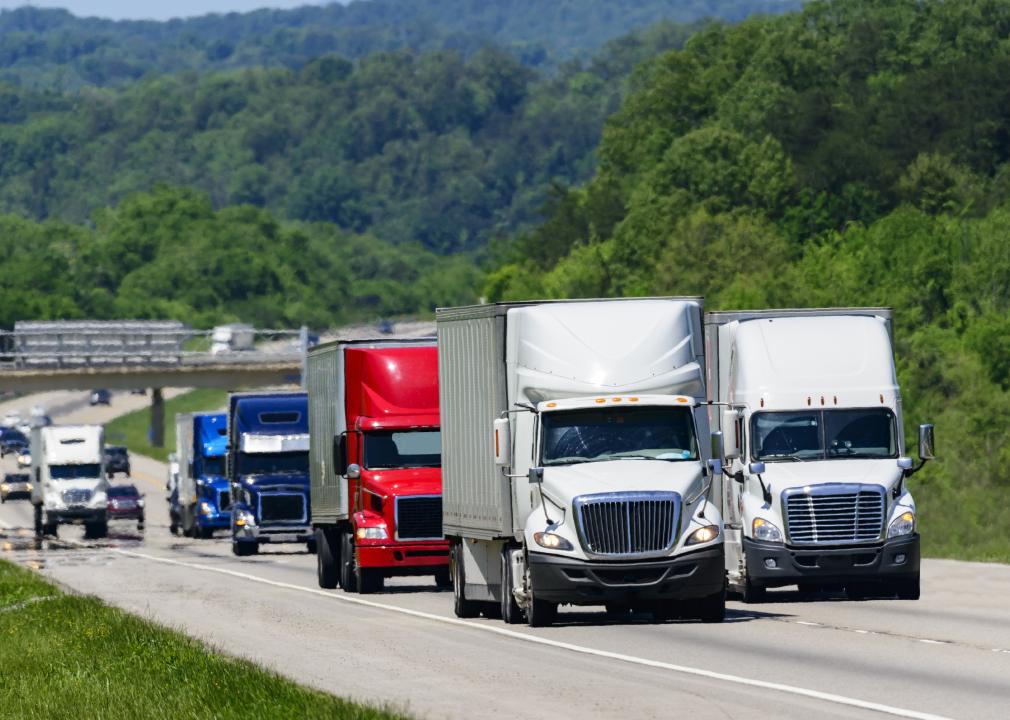The Digital Highway: How Tech Is Redefining Trucking Operations
September 11, 2025
Discover how technology is reshaping trucking operations. Learn how Red Ball Express Logistics uses digital tools for smarter tracking, automation, and improved customer service.

In the ever-evolving world of logistics, technology has emerged as more than just a helpful addition — it has become the backbone of modern trucking. What once relied on paper maps, manual scheduling, and countless phone calls has now been replaced by real-time tracking, smart automation, and advanced digital platforms. This digital shift, often called the “digital highway,” is transforming how freight moves, how businesses operate, and how customers experience logistics services. For companies like Red Ball Express Logistics, embracing these tools isn’t just about staying relevant; it’s about setting new standards of efficiency, reliability, and customer satisfaction in a highly competitive marketplace.
Smarter Visibility and Intelligent Route Optimization: The End of Guesswork in Trucking
One of the most visible changes in trucking operations has been the rise of real-time shipment tracking. Gone are the days when businesses had to call repeatedly to ask about the location of their cargo. With GPS-enabled tracking systems and telematics, every shipment can now be monitored on the move. Customers receive live updates about delivery status, while businesses gain the ability to make quick, informed decisions in case of delays or route changes. This level of transparency does not just provide peace of mind — it builds long-term trust between logistics providers and clients.
Equally transformative is the power of artificial intelligence in scheduling and routing. By analyzing traffic patterns, weather conditions, and delivery deadlines, AI-driven systems create the most efficient delivery plans. This helps fleets cut unnecessary miles, reduce fuel consumption, and avoid bottlenecks on the road. The result is not only cost savings for shippers but also faster and more reliable deliveries. At Red Ball Express Logistics, this means customers can be confident that their freight is moving in the smartest, most efficient way possible.
Digital Documentation and Predictive Maintenance: Reducing Roadblocks and Keeping Fleets Moving
Logistics has traditionally been slowed down by mountains of paperwork — customs clearances, compliance checks, and endless forms. These manual processes often caused delays, errors, and unnecessary costs. Today, however, digital documentation and e-signatures are eliminating these bottlenecks. By moving paperwork online, approvals are faster, mistakes are minimized, and cross-border operations are much smoother. For a logistics provider like Red Ball Express Logistics, this means seamless processes that keep shipments on track instead of stuck in bureaucracy.
Just as documentation has gone digital, so too has fleet maintenance. Thanks to Internet of Things (IoT) sensors and predictive maintenance technology, trucks can now be monitored continuously. These smart systems collect data on fuel usage, engine performance, and wear-and-tear, then alert fleet managers when a potential issue is detected. Instead of waiting for a breakdown on the road, repairs can be scheduled proactively. This reduces costly downtime, keeps drivers safe, and ensures that goods reach their destinations without interruption. For businesses depending on tight delivery schedules, this reliability is invaluable.
Customer-Centric Digital Platforms: Building Trust Through Transparency and Control
While technology has improved operations behind the scenes, it has also transformed how customers interact with logistics providers. Customer portals, mobile apps, and online dashboards are now giving businesses and individuals direct access to their shipment data. Clients can check delivery timelines, download invoices, and receive instant notifications without needing constant back-and-forth communication.
This shift toward customer empowerment is quickly becoming the new industry standard. At Red Ball Express Logistics, adopting these platforms is more than just about convenience — it’s about building stronger relationships. By offering transparency and easy access to information, customers feel more in control of their supply chains, which in turn strengthens their confidence and loyalty. In a marketplace where reliability is everything, these digital touchpoints set providers apart from the competition.
Why Digital Transformation in Trucking Matters for Businesses Everywhere
At its core, the adoption of digital technology in trucking is not simply about modernizing processes — it’s about delivering greater value to businesses. Every mile saved, every delay prevented, and every streamlined process directly impacts profitability and customer satisfaction. For shippers, this means reduced costs, better planning, and reliable partnerships. For end customers, it translates into faster deliveries, consistent service, and a stronger sense of trust.
Companies like Red Ball Express Logistics are proving that digital transformation is more than just a trend — it is the foundation of the future of logistics. By combining smarter visibility, predictive maintenance, digital documentation, and customer-centric platforms, they are building a logistics model designed for resilience and growth. In a world where supply chains are under constant pressure, the ability to adapt through technology is not optional — it is essential.
Final Thoughts
The trucking industry is moving full speed ahead on the digital highway. By embracing innovation at every level — from smarter tracking to predictive fleet management — logistics providers are redefining what it means to be fast, reliable, and customer-focused. For businesses that want to stay competitive, partnering with technology-driven providers like Red Ball Express Logistics ensures that every shipment is not just delivered, but delivered with intelligence, precision, and value.